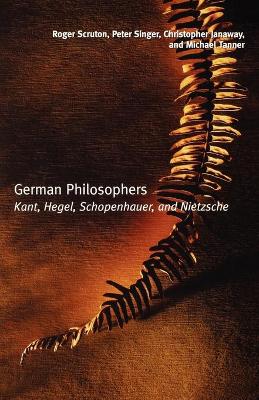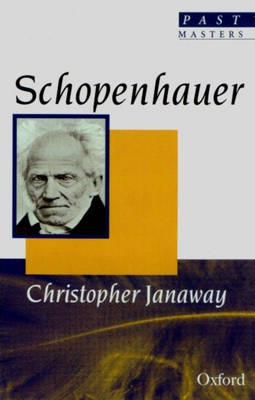Past Masters S.
2 total works
German Philosophers
by Roger Scruton, Peter Singer, Christopher Janaway, and Michael Tanner
Published 6 March 1997
German Philosophers contains studies of four of the most important German theorists: Kant, arguably the most influential modern philosopher; Hegel, whose philosophy inspired an enduring vision of a communist society; Schopenhauer, renowned for his pessimistic preference for non-existence; and Nietzsche, who has been appropriated as an icon by an astonishingly diverse spectrum of people.
Arthur Schopenhauer is the most readable of German philosophers. This book offers a succinct explanation of his metaphysical system, concentrating on the original aspects of thought, including his doctrine of the will, his pessimism and his theories of art and music - which inspired artists and thinkers such as Nietzsche, Wagner, Freud and Wittgenstein. At his best, Schopenhauer displays a gift for cogent and lucid debate, and for exposing the flaws of his predecessors. But what should also earn readers' respect is Schopenhauer's lack of complacency. He does not play safe, but risks confrontation with problems that ought to make readers insecure. He asks what the self is, and can give no easy reply. He presses on into the greatest insecurity, asking what value one's existence may have - and his conclusion here is even less comfortable. Within the classical restraint of his prose, he faces up to these concerns both as a philosopher and with all the resources of his personality. To bring into a single focus the genuine, probing philosopher and the imagination that excited Wagner, Hardy and Proust, along with many others, then readers shall be seeing Schopenhauer in his true light.
Christopher Janaway is the author of "Self and World in Schopenhauer's Philosophy".
Christopher Janaway is the author of "Self and World in Schopenhauer's Philosophy".

